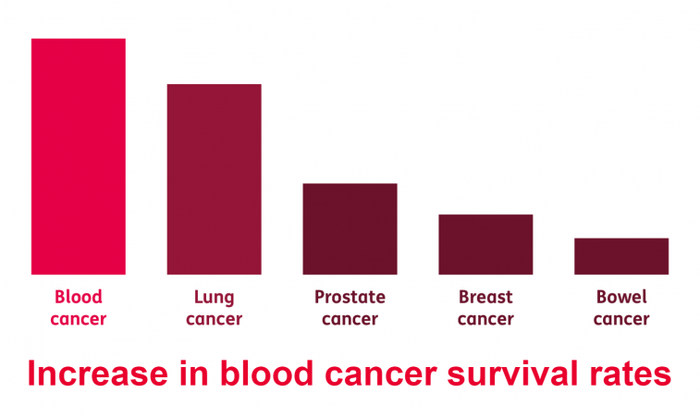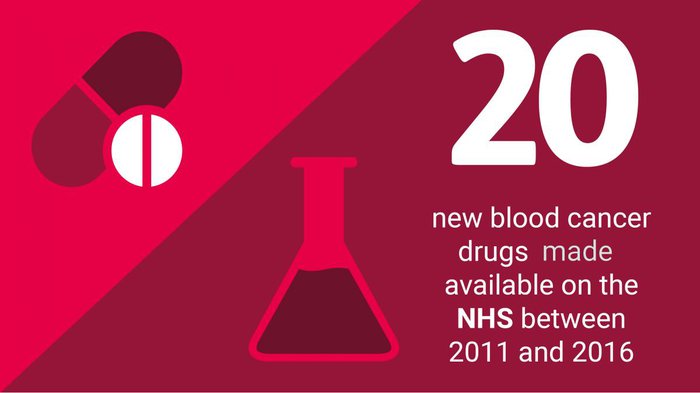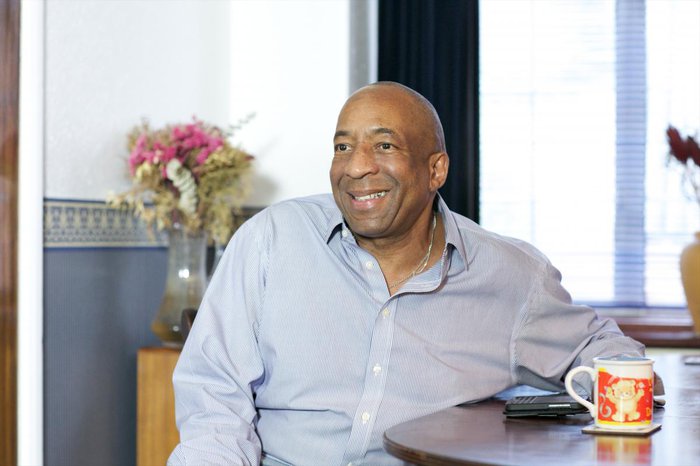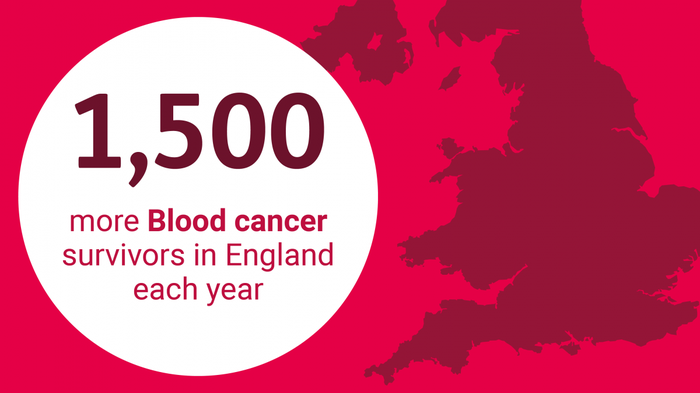Blood cancer survival rising faster than other common cancers
New analysis shows survival rates for blood cancer have risen faster than for other common cancers in recent years.

By analysing the latest data from the Office for National Statistics and Public Health England we found that sixty per cent of people with blood cancer are now expected to live at least five years.
This is an increase of 6.2 percentage points between 2010 and 2016 and equates to over 1,500 more blood cancer survivors in England each year.
Survival rates for myeloma in particular have increased dramatically – rising by 9.2 percentage points over the time period.
This compares with a rise of 4.9 percentage points for lung cancer, 2.2 percentage points for prostate cancer, 1.7 percentage points for breast cancer and 1.2 percentage points for bowel cancer.
We believe that people diagnosed with blood cancer are living longer because of continued research breakthroughs, which have led to a stream of more effective drugs being made available to patients.

Nearly 20 different drugs were approved for the treatment of blood cancer on the NHS between 2011 and 2016.
Newton's story: 'new treatments are helping to save my life'
Newton McGrath, 61, from Maidenhead, Berkshire, was diagnosed with myeloma in 2007 after abnormalities showed up in a routine blood test.
He said: “I only got diagnosed because my company were giving free health checks for people over 40. A blood test picked up signs of the myeloma and when I realised I had cancer, I was stunned."

“When I was first diagnosed, I was very worried about the fact that my myeloma was likely to come back, but I’ve undergone several different types of treatment over the years and so far I’m able to keep working and I have a good quality of life.
"I’m lucky that treatment I’m on now is helping save my life and I feel a lot more positive about the future. But, it shocks me to think that if I had been diagnosed just a few years earlier, I might not be alive today.”
More investment in research is vital
We welcome the increase in long-term survival but warn that too many people are still dying. Blood cancer, which includes leukaemia, lymphoma and myeloma, is still the UK’s third biggest cancer killer after lung and bowel cancers and accounts for more deaths than breast and prostate cancers.
Dr Alasdair Rankin, Director of Research Policy and Support, said: “The increase in survival rates for people with blood cancer is hugely encouraging. The progress made into researching more effective treatments for this kind of cancer has been truly remarkable and is one of the great cancer success stories of recent years.
“However, we must not be complacent. Blood cancer still kills over 12,000 people in England every year and for some types of blood cancer, survival is as low as two out of ten people. With surgery and radiotherapy rarely an option for treating this kind of cancer, it’s crucial that we keep investing in research to find new and better treatments to beat this terrible disease and so even more lives can be saved.”
How the survival rates were calculated and what they mean for people with blood cancer
The Office for National Statistics and Public Health England used a range of cancer mortality and survival statistics to provide the most accurate estimates of five-year cancer survival rates for England ever produced.
Estimated five-year survival for myeloma increased by 9.2 percentage points from 42.5 per cent during 2006 -2010 to 51.7 per cent in the period 2012 to 2016. Leukaemia survival also increased significantly over the six-year period – by 6.8 percentage points from 45.8 to 52.5 per cent. Non-Hodgkin lymphoma survival rates increased by 4.7 percentage points from 61.2 per cent to 65.9 per cent.

The improvement means that about 400 more people in England diagnosed with myeloma, 500 people diagnosed with leukaemia and 500 people diagnosed with non-Hodgkin lymphoma in 2016 will live at least five years compared to if they had been diagnosed in 2010.
We believe the positive figures are due to better treatments being made available – which wouldn't have been possible without your support.

